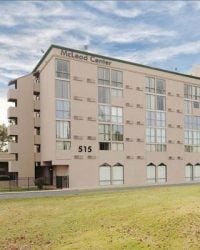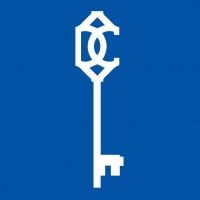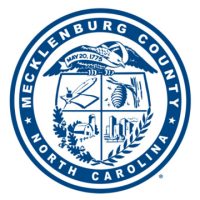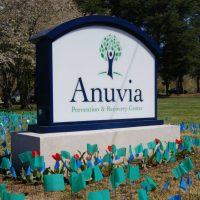McLeod Addictive Disease Center - Charlotte
Drug Rehab Center in Charlotte, North Carolina
McLeod Addictive Disease Center - Charlotte provides a wide range of evidence-based treatment options and support services, accredited by SAMHSA and CARF, to help individuals and their loved ones overcome addiction and achieve long-term sobriety in Charlotte, NC.
About This Charlotte, NC Facility
McLeod Addictive Disease Center, founded in 1969 by Dr. Jonnie H. McLeod, is located in Charlotte, North Carolina. This addiction treatment center is dedicated to supporting individuals struggling with substance use disorders, treating them with respect and dignity.
The center focuses on helping men and women battling drug and alcohol addiction through intervention, education, and support.
McLeod Addictive Disease Center offers a range of treatment options, including medication-assisted treatment (MAT), intensive outpatient programs (IOP), and inpatient residential care. The facility is accredited by SAMHSA and CARF, ensuring high-quality, evidence-based treatment.
- Comprehensive MAT program using FDA-approved medications and counseling
- Personalized inpatient residential treatment for up to 28 days
- Intensive outpatient and outpatient programs with group and individual therapy
- Residential DWI program as an alternative to incarceration
North Carolina faces a significant opioid epidemic, with overdose deaths increasing in recent years. McLeod Addictive Disease Center addresses this issue through its comprehensive MAT program and evidence-based treatment approaches.
Individuals seeking recovery from drug or alcohol addiction, who require a structured and supportive environment, would benefit from the services provided at McLeod Addictive Disease Center.
Genders
Ages
Modality
Additional
Accreditations
SAMHSA

CARF
The Commission on Accreditation of Rehabilitation Facilities (CARF) is a non-profit organization that specifically accredits rehab organizations. Founded in 1966, CARF's, mission is to help service providers like rehab facilities maintain high standards of care.
Conditions and Issues Treated
Substance abuse refers to the intensive and inappropriate use of psychoactive substances. Psychoactive substances are those that affect brain function. These include illegal drugs, alcohol, and even the excessive use of prescription drugs. The overuse of psychoactive substances leads to severe physical or psychological dependence. It also affects the social life and relationships of the affected individual. Substance abuse is treatable.
The duration of treatment at McLeod Addictive Disease Center - Charlotte in Charlotte can require weeks or even months depending on the severity of the condition as there is a risk of relapse. Treatment options include medications, counseling sessions, various types of behavioral therapy, and group therapy in different combinations.
Addiction to prescription opioid painkillers like oxycodone and hydrocodone, and illicit opioids such as heroin, leads to potentially life-threatening withdrawal symptoms when discontinued. Opioid addiction treatment typically involves an inpatient stay at facilities like McLeod Addictive Disease Center - Charlotte to make sure they get through withdrawal safely. Treatment also includes comprehensive mental health counseling.
Levels of Care Offered
This center offers a variety of custom treatment tailored to individual recovery. Currently available are Aftercare Support, Detox, Drug Rehab, Inpatient, Intensive Outpatient, Outpatient, Residential, with additional therapies available as listed below.
One of the first things an addict should do when entering treatment is to abstain from using illicit drugs completely. Depending on the length of time that the person has been using, the addict may have to go through alcohol or drug withdrawal. Fortunately, detox doesn’t have to be done alone, and withdrawal symptoms can be managed medically in an inpatient or outpatient setting. While detox may be uncomfortable, it is not life-threatening. Detoxification allows the addict to rid the body of all traces of drugs or alcohol and gives the addict a clean slate for their recovery.
Inpatient programs are intensive regimes that require individuals suffering from serious addictions to admit themselves into a controlled environment. Inpatient programs in North Carolina generally span over 28 days to six months. The first step in an inpatient program is medically assisted detox. Doctors and addiction specialists at McLeod Addictive Disease Center - Charlotte monitor the individual’s vital signs as the drugs leave their system. Some inpatient rehab programs also provide counseling for family members to provide encouragement and emotional support. In inpatient programs, patients have access to 24-hour medical supervision.
Daily trips to the hospital that provides the treatment include intensive outpatient services (IOP). IOP in North Carolina is appropriate for patients in residential recovery facilities that have been diagnosed with addiction. Patients return to their everyday lives gradually, increasing the likeliness of success in treatment.
To assist with alcohol or opioid abuse, or a co-occurring condition, McLeod Addictive Disease Center - Charlotte offers an outpatient treatment program. For their rehabilitation and other services, the North Carolina patient will go to the treatment center, yet return home every night. After most of the program is completed, the level of mandatory participation reduces.
Residential treatment programs are those that offer housing and meals in addition to substance abuse treatment. Rehab facilities that offer residential treatment allow patients to focus solely on recovery, in an environment totally separate from their lives. Some rehab centers specialize in short-term residential treatment (a few days to a week or two), while others solely provide treatment on a long-term basis (several weeks to months). Some offer both, and tailor treatment to the patient’s individual requirements.
Treatment is just a first step in sustaining sobriety. After rehabilitation, counseling for aftercare helps the person adapt to a life without drugs. A sober living facility in Charlotte, job therapy, or educational assistance may be included in this service, managed by McLeod Addictive Disease Center - Charlotte. This is when a preventive strategy for relapse starts to take shape.
McLeod Addictive Disease Center - Charlotte‘s Therapies & Programs
In addiction recovery at McLeod Addictive Disease Center - Charlotte, therapy plays a significant role. This helps patients get to the root of their addiction and discover how the problems that contributed to their use can be handled better. Therapy can be performed in a group and one on one settings. The patient interacts with the therapist in a one-on-one atmosphere during individual therapy. This encourages them to reflect on the underlying addiction problems and develop ways to avoid potential future abuse.
Addiction and alcoholism affect the entire family. For this reason, family therapy is vital to a person’s recovery from addiction. In contrast to couples counseling, family therapy at McLeod Addictive Disease Center - Charlotte may include siblings, children, parents, and other significant people in the recovering person’s life. Family support is one of the most important pillars of recovery.
Many people turn to drugs and alcohol as a way of processing trauma that has affected them in the past. Trauma can include abuse, neglect, the loss of a loved one and other unpleasant incidents. Trauma therapy at McLeod Addictive Disease Center - Charlotte helps patients process trauma. It gives them the tools to deal with it in a healthier manner.
Dialectical behavioral therapy (DBT) is a type of Cognitive Behavioral Therapy that focuses on eliminating specific negative thoughts such as suicidal thoughts that can potentially lead to an individual inflicting self-harm. It is useful in the treatment of patients exhibiting uncontrollable emotions, intense mood swings, and borderline personality disorders.
The term “Dialectic” means the integration of opposites. In the substance abuse context, DBT refers to accepting the patient’s addiction and working to change their thoughts and behavior. It improves life skills such as controlling the intense emotions without reacting impulsively, resolving the interpersonal conflicts effectively, and promoting awareness about self and others.
Cognitive Behavioral Therapy (CBT) examines the relationship between a patient’s thoughts, feelings and behaviors. McLeod Addictive Disease Center - Charlotte aims to establish a healthy response to thoughts and feelings as an alternative to turning to drugs and alcohol. It also promotes healthy communication between addicts and those around them. It is and effective therapy for people suffering with all types of addictions.
Life skills pertain to the skill sets a person should possess to become successful in life. Examples are time management, budgeting, and social abilities. Life skills therapy highlights the fact that addiction recovery is more than just a person’s ability to go through their day-to-day without resorting to substance use in Charlotte, NC once they leave the facility.
The recovery technique used by Alcoholics Anonymous is the 12 step program, but it can relate to any form of addiction. The 12 steps that addicts must take on the road to recovery are explained. Measures include acknowledging that you have a problem and agreeing to turn around your life. The curriculum, instructed by McLeod Addictive Disease Center - Charlotte, also requires a belief in a greater power and making amends to others.
Contingency Management (CM), also called motivational incentives, is a type of pure behavioral therapy. It’s based on the idea that behavior is shaped, motivated, or controlled by its outcomes. CM is a clinical application at McLeod Addictive Disease Center - Charlotte of operant conditioning, which helps clients eliminate unwanted behaviors by the use of positive and negative reinforcement.
Payment Options Accepted
For specific insurance or payment methods please contact us.
Is your insurance accepted?
Ask an expert, call (888) 674-0062
McLeod Addictive Disease Center Associated Centers
Discover treatment facilities under the same provider.
- McLeod Addictive Disease Center - Hickory in Hickory, NC
- McLeod Addictive Disease Center - Monroe in Monroe, NC
- McLeod Addictive Disease Center - Marion in Marion, NC
- McLeod Addictive Disease Center - Monroe in Monroe, NC
- McLeod Addictive Disease Center - Statesville in Statesville, NC
Learn More About McLeod Addictive Disease Center Centers
Additional Details
Specifics, location, and helpful extra information.
Charlotte, North Carolina 28217 Phone Number(704) 332-9001 Meta DetailsUpdated April 15, 2024
Staff Verified
What else do people call McLeod Addictive Disease Center – Charlotte?
People have occasionally also searched for “McLeod Addictive Disease Center in North Carolina”
Patient Reviews
There are no reviews yet. Be the first one to write one.
Charlotte, North Carolina Addiction Information
North Carolina ranks 29th in the nation for overall substance abuse. Many of the drugs abused in the state are illicit, and many of these are opioids. Prescription opioids are readily available due to the high rates of medical workers prescribing them. The number of prescriptions has increased tenfold since the 1980's. Opioid overdoses are the most common type of death in North Carolina.
4.3% of Charlotte residents aged 12 and older reported using illicit drugs. There are over 60,000 people addicted to drugs in Charlotte, North Carolina. This harms the community and contributes to crime and other social problems. Medication-assisted treatment is often used in conjunction with other forms of treatment, such as therapy, and can be very successful in helping someone overcome addiction.
Treatment in Nearby Cities
- Black Mountain, NC (86.3 mi.)
- Winterville, NC (197.6 mi.)
- Summerfield, NC (89.0 mi.)
- Black Creek, NC (168.9 mi.)
- Star, NC (63.5 mi.)
Centers near McLeod Addictive Disease Center - Charlotte
The facility name, logo and brand are the property and registered trademarks of McLeod Addictive Disease Center - Charlotte, and are being used for identification and informational purposes only. Use of these names, logos and brands shall not imply endorsement. RehabNow.org is not affiliated with or sponsored by McLeod Addictive Disease Center - Charlotte.











